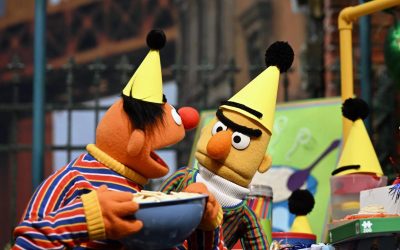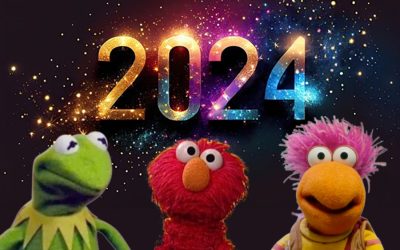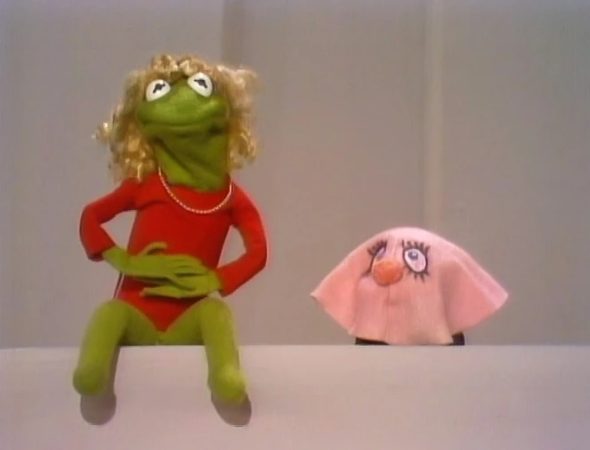
Today’s article was written by our old friend and frequent Muppet Mindset contributor Kieran Moore.
A funny thing happened when I came out as gay to one of my friends. I don’t remember the exact words used, but they were something along the lines of, “I knew it. No one who likes the Muppets as much as you could be straight.” Now we all know that’s not the case (and a sweeping generalisation), but it is a fact that the Muppets attract their fair share of queer fans and I do think it’s larger proportionately than a lot of other similar fandoms.
It’s difficult to compare the fans of the Muppets to those of other intellectual properties, purely because there are very few things out there that are a like for like comparison. In reality, you probably are looking at bigger franchises like Disney and Star Wars in terms of the scope of the Muppet world and the breadth of their output. We know that both Disney and Star Wars have large gay followings – “Disney gay” is a legitimate term – and I could see my friend possibly saying the same to me if I were a Disney fan, but would you really say to a Star Wars fan that his love of all things Dagobah gave the game away? I doubt it.
So I feel The Muppets are up there alongside Disney in terms of the amount of gay fans (am I a man or a “Muppet gay”?) But why? Beyond the obvious skill of the creatives behind the Muppets, what is it about this puppet troupe that we are attracted to? Are the Muppets inherently gay? And who’s gonna buy a walnut lima bean sandwich? As pride month comes to a close I decided it was time to find out…
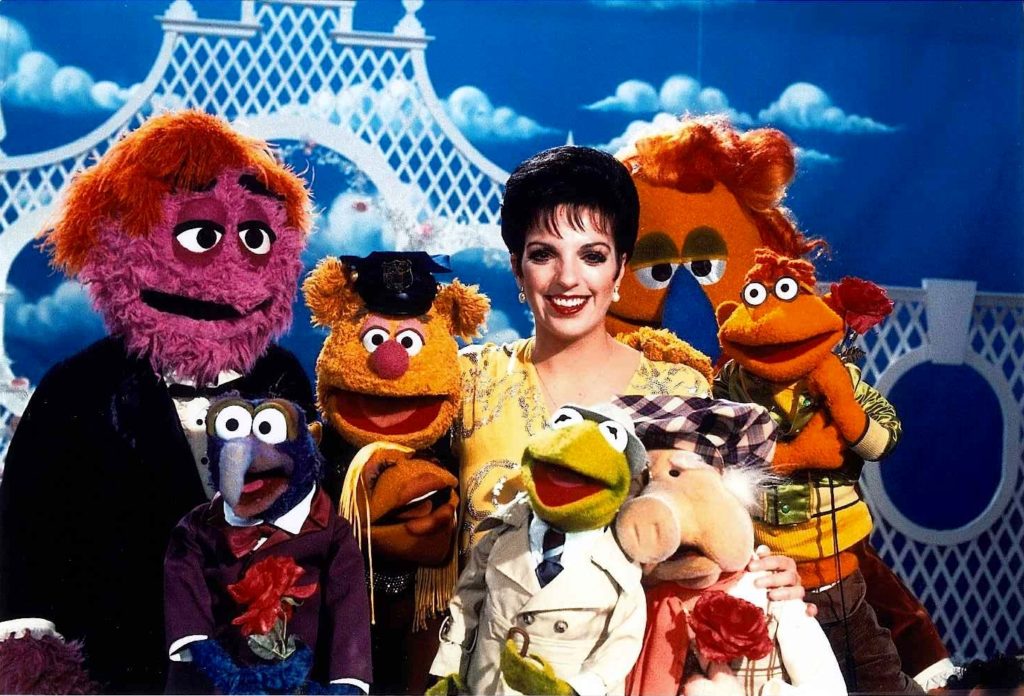
There are a few universal constants – night follows day, the cheese on your takeaway pizza will stick to the lid of the box, and gays love an icon. From Liza to Madonna to Elton we stan our iconic kings and queens, so perhaps the best way to answer my Muppet question is to determine why and see if we can apply the same logic to Gonzo, Fozzie and Beverly Plume. What makes a gay icon and do the Muppets fit the mould?
There doesn’t seem to be any general consensus as to what qualities a gay icon possesses. Wikipedia says gay icons ‘usually have a devoted LGBT fanbase and have acted as allies to the LGBT community, often through their work. Alternatively, if they have not acted as allies, they have been “openly appreciative of their gay fanbase”’, so let’s look at that first.
One of the world’s biggest gay icons, Madonna, has always shown solidarity with her queer fans. Alongside fellow icons Princess Diana and Elton John, she shone a light on the AIDS epidemic and was never afraid to speak her mind on such issues. Although somewhat controversial, Madonna also played a big role in shining a spotlight on Ballroom, bringing it to the masses in the early 90’s. Sure, she profited from this exposure, but it highlighted that there was more to being queer than the stereotypical white gay man everyone knew. He, she or they; Madonna showed that a rainbow encompasses everyone – way before it was cool to do so.
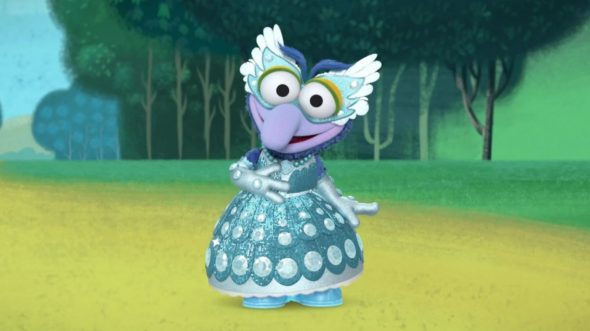
From Sir Ian McKellan to Harvey Milk to Barbra Streisand, many people we consider gay icons have activism and support for the community as one of their central tenets, but do the Muppets? How have Kermit and Co. shown support for their LGBTQ fans?
For an actual tangible answer you can look at things like Kermit’s presence at Disney’s “This is Me” in 2021 and the pandemic-busting “Can’t Cancel Pride” in 2020. Miss Piggy has featured at a Trevor Project event as well as making a live appearance on the OUT100 red carpet. Whether accidentally or on purpose, many of Kermit’s signature songs can be seen as queer anthems – “Rainbow Connection” and “Bein’ Green” in particular.
We’ve seen Fozzie and Pepe make references to the gay meaning of the term “bear” and gender fluidity respectively in the 2015 series. Baby Gonzo dressed against gender stereotypes as “Gonzorella”. They’ve spoken about drag, appeared on Drag Race and used preferred pronouns for guests. In a more thematic sense, the Muppets’ willingness to accept all comers feels like a huge vote of support for those of us that feel different on a regular basis – that’s not something exclusively LGBTQ+, but it certainly is a big part of it at times.
Behind the scenes, the inclusion of queer creatives such as Richard Hunt and those that Tough Pigs have highlighted recently shows that advocacy wasn’t just lip service. Although I’m focusing primarily on the Muppet Show Muppets here, it’s also worth noting also that The Jim Henson Company severed ties with Chick-Fil-A for reasons that have been well reported and donated the money received from them to GLAAD. The show Earth to Ned also felt hugely inclusive. So I think regarding allyship the Muppets could be considered gay icons, but there’s more to it than that. My mailman supports gay marriage, but an icon he is not. (Sorry, Kevin.)
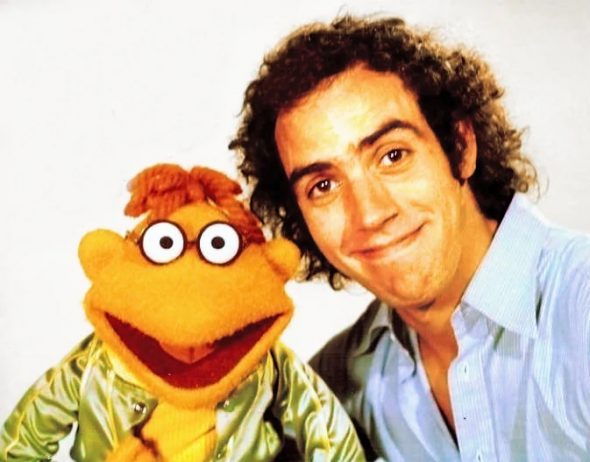
Another thing that is often quoted as an integral part of being a gay icon is a devoted fanbase. I don’t expect I’ll need to convince readers of Tough Pigs that the Muppets have a devoted fanbase, but for the sake of completeness here goes… Lots of gay icons have their fan groups – Mariah has Lambs, Lady Gaga has Little Monsters, Rihanna has her Navy and the Muppets have… Actually, did we ever come up with a name? Are we Hensonians? Feltheads? Forsureleans? I don’t know.
What I do know is that if it’s a prerequisite to being a gay icon to have a fan base that will follow them to the ends of the Earth, spend ridiculous sums of money to see them and help an elephant get into the witness protection programme (“Where did that bellhop go?” ”Elefino…”) then the Muppets have that well and truly covered. So we have another checkmark.
Another thing all gay icons have is a sense of style. Often flamboyant, but not necessarily so, I defy anyone to name a gay icon that doesn’t have a distinctive look.
Let’s play a game – I’ll name three gay icons and you tell me the first image of each that comes to mind…
George Michael,
Freddie Mercury,
Marlene Dietrich.
I’d bet good money 99% of you thought:
Shades, leather jacket, ripped jeans.
Moustache, white vest, mic stand.
Top hat, bow tie, cigarette.
And that’s a game you could play for hours.
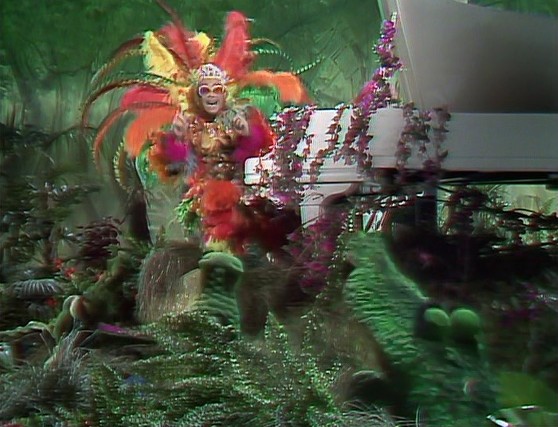
That said, when you get to the uber-gay icons, it goes back the other way. Think about Madonna, Elton John and Lady Gaga. They all have iconic looks, but is there an obvious one? And somehow the Muppets manage to straddle both of these categories. Kermit is of course Kermit. The green collar is really where it’s at, but the reporter look is up there too.
Nowadays Gonzo is known for the chili pepper shirt but depending on your vintage, if asked for a signature Gonzo look you might also say purple tux or sweater vest. And of course there is the true icon of the Muppets – Miss Piggy. Again, she has the obvious Muppet Show-era halter neck, sash and kerchief combo, but even from back then you can’t discount her iconic nurse and first mate outfits. And from there the fashion world has been her clam chowder – picking and choosing from the best designers out there. From Marc Jacobs to Vivienne Westwood, she’s worn them all.
So while the Muppets absolutely have a look – in common with icons like RuPaul, Cher and Dusty Springfield – you never quite know just what looks they’re going to turn until they do. Yet it’s always signature Muppets and it’s always iconic. So they’ve passed this test. This is fun, let’s do another.
When I asked some of my friends what makes a gay icon one of the responses I got was that they reject ordinariness. To further this, similar responses included, being bold, pushing boundaries and ruffling the mainstream. We see this in icons such as David Bowie, Prince, and relative newcomer, Sam Smith. It’s kind of depressing that Sam Smith comes in for so much criticism still when Prince and David Bowie were pushing the same boundaries decades ago, and even more depressing that Harry Styles gets a relative pass, but that’s not what we’re here to talk about…
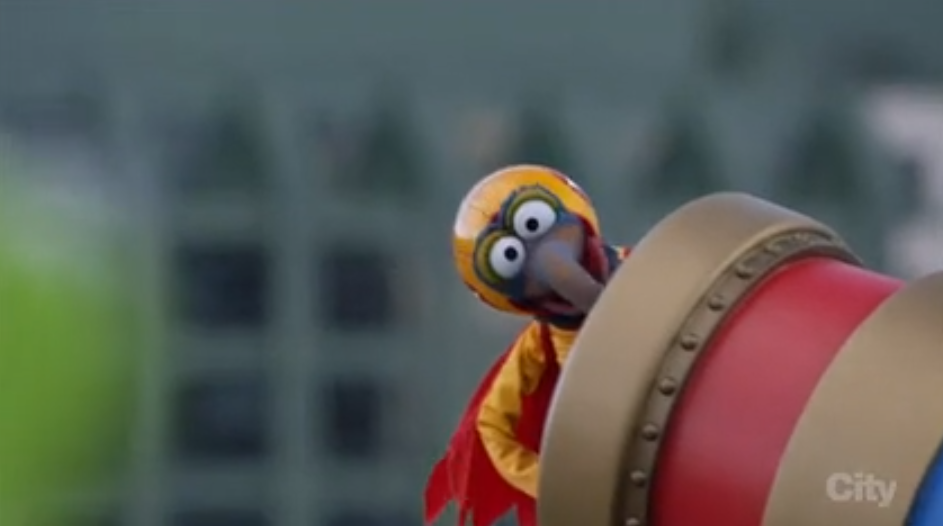
Anywho, I don’t think I need to really belabor the point that the Muppets reject ordinariness or push boundaries. From off the wall characters Lew Zealand and Marvin Suggs to surreal sketches including “Hugga Wugga” and “Ragg Mopp,” the Muppets not only enjoy weirdness – they revel in it and celebrate it wholeheartedly.
Gonzo is of course the main Muppet purveyor of all that is off-kilter and despite some exasperated moments, Kermit is his biggest champion. Just see the Muppets sitcom episode “Going, Going, Gonzo” for proof. Honestly, the moment when Gonzo jumps and Kermit tells him he’s “Gonzo the Greatest” will never not make me tear up. So many queer fans identify with Gonzo (for good reason – we also often feel alone, weird, different), so to hear Kermit celebrate him makes us feel celebrated too. That scene from the 2015 show could legitimately have a place in my top 10 Muppet moments ever. So the Muppets reject ordinariness – who knew?
And this brings me to another point – as gay people we often identify with our icons because they have faced difficulty at some point in their life. Plenty of the people I’ve mentioned already fall into this category, but it’s hard to ignore the Judy in the room on this one.
Judy Garland might just be the biggest gay icon in the world… ever. It’s not an outrageous claim. She has all of the above, and the points still to come, but she is also well known for having a difficult life. She struggled with drug and alcohol addiction, her weight, and her finances. She also had several tabloid-friendly relationships. And yet, through it all she persevered. She continued and found a way. And that’s why we love her.
As individuals and as a community, we’ve struggled and persevered. And that’s what the Muppets do. Every week on The Muppet Show, Kermit was “barely holding it together”. And yet he persevered and he did. Every week. We’ve seen the Muppets struggle against frogicidal fast food tycoons and random rich people who want to own a theater and, let’s be honest about this, themselves. And yet, they always succeed. The show goes on. They persevere.
In a real world sense, Jim Henson often had to sell the idea of The Muppets and/or his next venture and he regularly struggled to do so. There are plenty of concepts that didn’t make it and shows that didn’t last as long as they could’ve or should’ve. It took a long time and a change of continent to get someone to give him the chance to make The Muppet Show… And yet he persevered and succeeded. And we got wonderful art such as Fraggle Rock and Labyrinth in the process. So the Muppets know how to struggle and succeed. This is getting easy.

There’s one last piece of criteria I think all gay icons have and that’s talent. Look at any of the names I’ve mentioned so far and tell me they’re not talented. Add to this list Kylie Minogue, Oscar Wilde, Dolly Parton, Shirley Bassey… And that really is only the tip of the rainbow-colored iceberg.
Even if you just take the few names listed above, all have/had successful careers and are/were considered amongst the best ever in their chosen field. I’d defy anyone to tell me all aren’t supremely talented. I truly believe this is the most important part of being a gay icon. You can be a strong ally and camp as a row of pink tents; weirder than Al Yankovic and have struggled all your life, but if you don’t have the talent to back that up you’ll never really be a gay icon. It’s just the way it is.
So if this is the big ticket item, do the Muppets pass muster? I have to get on my soapbox here for a minute. It’s always annoyed me that “Muppet” has become a term for incompetence – that is now a literal dictionary definition of the word. And yet, even if you just take them as characters in a TV show they are very good at what they do. Kermit produces and hosts a show that regularly packs out a theater and brings in big name celebrities. Miss Piggy acts and sings and is a legitimate superstar because of this. The Electric Mayhem are insanely good.
Even those characters whose schtick it is to fail are good at what they do – they often just do it in an unconventional way. I will readily die on this hill. And there is no reason for me to go over why the people behind the Muppets are talented. They just are. If we can agree on no other point made here today then we can surely agree on this. So yes, once again, we can say based on this criteria the Muppets are gay icons.
One possible stumbling block to this question (and one that could discount everything I’ve written) is – can a fictional character be a gay icon? It’s an easy rebuttal (and I will rebut it – easily), but it’s a point worth mentioning. You’ll quite often see fictional characters listed amongst real people in lists of gay icons. One of my favorites is The Babadook. One supposed origin of this is simply that Netflix accidentally listed it as an LGBTQ movie on their platform, but another theory (possibly retconned) suggests it’s because they fight against societal norms.
Buffy the Vampire Slayer is another. And of course there is a reason gay people can be referred to as “friends of Dorothy”. Dorothy Gale from The Wizard of Oz, with her gingham dress and ruby slippers, is a true gay icon. And in my humble opinion, separate from Judy Garland. Dorothy dreams of being “over the rainbow” away from her sepia-colored existence in a place where she can live her dreams. Queer people often do the same.
And as someone who has done just that, I can also attest to the need to still have “home” once you’ve done so. I live in a fully gay world. I’m out everywhere. I sing in a gay choir and run in a gay running club. I have amazing gay friends and a rainbow on my bed. And yet I still want “home”. And that is why Dorothy Gale is a gay icon. And if she can be – so can the Muppets.
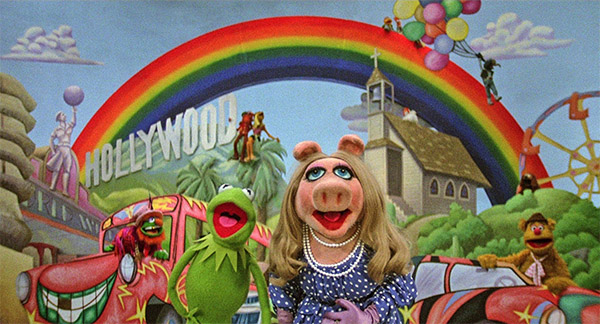
To conclude (because heaven knows I’ve written enough), as far as I’m concerned the Muppets should absolutely be seen as gay icons and yet for whatever reason I’d wager only a small slither of people consider them as such. Individually, Miss Piggy is the closest we get to an established gay icon from the Muppet Show Muppets and I think she’s almost there, but as a group I really think the whole gang should get more recognition.
Maybe that’s the problem – they are a group, not an individual. When I was researching this piece (I know, it doesn’t seem like it), I only found one group on any list of gay icons – ABBA. Maybe being part of a group makes it tougher – perhaps as queer fans we need that one person, that one individual with whom on some level we can identify. Honestly, I think that’s the secret. That’s the missing ingredient.
But here’s the thing, if Miss Piggy or Gonzo represents you, then the Muppets at large represent the whole queer community. Our trans, non-binary, intersex, asexual, gay, lesbian, bi, demiboy, demigirl friends and neighbors. They all have a place in our rainbow connection. Picture that final moment in The Muppet Movie with the rainbow streaming down and then imagine not all sexualities and genders are presented there. The Muppets are gay icons because they represent us all.
So I call on the queer community to get behind the Muppets as gay icons – not because they’re flamboyant and camp or have struggled and succeeded. Not even because they’re talented. But because they include us all in a way no one else does or can. They are our past, present and future and show us just how amazing we are. And that’s iconic.
Now, who wants to buy a walnut lima bean sandwich…?
Click here to buy Kieran’s sandwich on the ToughPigs forum!
by Kieran Moore

